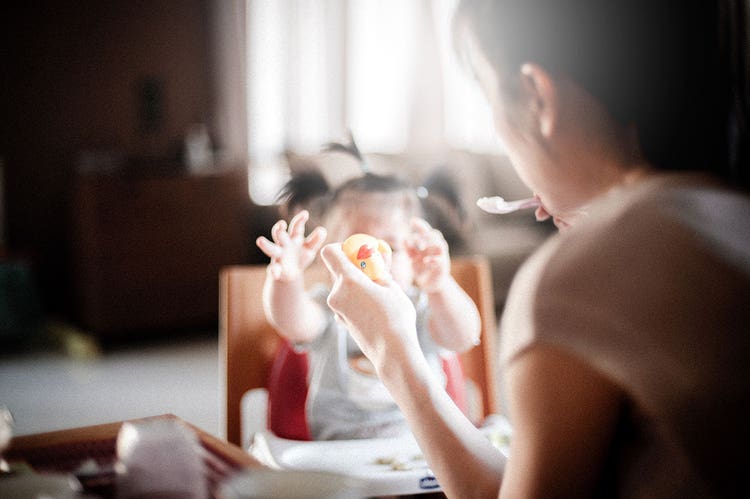Ancient Therapy for the Modern Issue of Fertility and Reproductive Health

Women worldwide are taking greater control over the timing and circumstances of their pregnancies. Still, about 10 percent of women (6.1 million) in the United States up to age 44 have difficulty getting pregnant or staying pregnant, according to the Centers for Disease Control and Prevention.
Infertility therapies include medicine, surgery, artificial insemination and assisted reproductive technology. And increasingly, these forms of traditional Western medicine are being enhanced with Eastern medicine, including acupuncture and traditional Chinese medicine.
Christopher Peacock, a licensed and board-certified acupuncturist, herbalist and teacher of Chinese medicine at The Yinova Center in New York, explains how acupuncture and integrative medicine can be used to treat a variety of health conditions, from infertility to inflammation and more.
From alternative medicine to mainstream treatment

Acupuncture was introduced to the U.S. in the 1970s, and since that time, it has evolved from an obscure alternative treatment to mainstream medicine. Today, many leading medical schools offer acupuncture courses to physicians, several professional societies certify acupuncturists, and an estimated 2 to 3 million Americans visit an acupuncturist each year, according to Harvard Health Publishing.
But what exactly is acupuncture and how does it work?
“Acupuncture heals by accessing specific acupuncture points throughout the body to release qi (pronounced ‘chee’) or energy and restore balance,” Peacock says. “The scientific mechanism by which acupuncture works has long been a mystery, but one of the more comprehensive and supported theories is that acupuncture works by stimulating fascia, the body’s connective tissue, which is made up of collagen and water and is highly conductive. It’s widely believed that fine needles applied along the ‘acupuncture meridian’ network can release blocked qi in the fascia, thereby alleviating suffering and inspiring the body to heal itself.”
The needles used in acupuncture are very small and thin, and they do not generally cause discomfort. However, many patients experience a variety of unique sensations during treatment called “deqi,” Chinese for “obtaining the qi.” Deqi is the stimulation of vital energy inside the acupuncture meridian network, which are pathways or channels of energy that run through the body and are associated with different aspects of our health, and it is a natural and therapeutic part of treatment.
An innovative method for promoting fertility

“Fertility support is a specialty of The Yinova Center,” Peacock says. “In fact, it’s in our name. ‘Yin’ derives from the Chinese principles of yin and yang—that all things exist as inseparable and contradictory opposites—and ‘ova ’ is the Latin plural for egg.”
Yinova’s team of licensed and board-certified practitioners have been trained by the center’s founder, Jill Blakeway, DACM, LAc, MSc, author of a well-regarded book on infertility entitled “Making Babies” (Little, Brown and Co., August 2009) and a pioneer in the use of acupuncture to address reproductive issues. Yinova’s staff works with clients to enhance fertility, either through natural means or with the assistance of artificial reproductive techniques, such as in vitro fertilization and intrauterine insemination.
The first step in promoting fertility is to determine the issues preventing it. Yinova’s diagnostic process works by identifying patterns of disharmony within a patient’s health.
“Acupuncturists are very good at identifying if body systems are failing to work together. Because we look at patients from a holistic viewpoint, we can maximize someone’s reproductive potential by adjusting how the different body systems work together,” Peacock says. “Acupuncturists ask a lot of questions and also look at a lot of markers (the tongue, the pulse and so on) to determine our treatment plan. We never rely on one single sign or symptom. After we do a thorough intake of health and lifestyle, the disharmony reveals itself and we can treat it accordingly.”
Yinova practitioners use herbs, nutrition and acupuncture to produce fertility programs tailored to the specific needs of individuals and couples. These customized treatment plans may include the use of acupuncture and Chinese medicine to reduce inflammation to aid embryo implantation, increase blood supply to the pelvis and uterus to support a healthy ovarian follicle, balance and offset the effects of stress on reproductive hormones, and support and enhance the effect of artificial reproductive techniques. Yinova staff works hand in hand with a patient’s OB-GYN or reproductive endocrinologist to make sure all their reproductive care is coordinated and maximized.
The results of the Yinova method can sometimes be dramatic, as Peacock notes in the case of a 32-year-old woman with amenorrhea—an abnormal absence of menstruation.
“My client had not had a period for eight years, and she and her partner knew they wanted to have children in the future,” Peacock says. “So I asked her to commit to treatment for three months, and during that time, I told her that we were going to do acupuncture weekly, plus a few rounds of herbs. After two months, she became impatient that nothing was happening, but at three months to the day, she finally got her first period in years. The next month she got another period, and she was so excited by the progress. Then she missed her next period and feared there was something wrong—but the reason she didn’t get her period that month was because she actually was pregnant!”
With stories like that, it is understandable that acupuncture is becoming increasingly popular as a means to address or augment fertility.
“Acupuncture and Chinese medicine have been used for centuries to improve fertility for both men and women,” Peacock says. “And more and more scientific studies are proving the effectiveness of these treatments as stand-alone methods or as complements to Western fertility treatments.”
An effective treatment for chronic pain
Although promoting fertility is one of the more innovative applications of acupuncture, it is by no means the only one. Acupuncture has long been an effective alternative for many patients with chronic pain conditions, such as arthritis, fibromyalgia, sports injuries, or age-related aches and pains, and it is useful for patients who are unable to take certain pain medications. The common thread in many chronic pain conditions is inflammation, a condition that responds well to acupuncture and Chinese medicine.
“If you look at the origin of the word ‘inflammation,’ it literally means ‘in flames,’ and that’s how a body part often feels when it’s inflamed—hot, red and swollen,” Peacock explains. “What makes our approach effective is that we address not only the symptoms but the root cause of the inflammation, as well. If we don’t fix the cause of inflammation, then we are constantly just clearing it, but if we also treat the reason for it, then we can make headway with chronic inflammatory conditions.”
Acupuncture shows promise in the treatment of chronic pain. For example, results of a November 2015 study in the Annals of Internal Medicine determined that 15 to 20 minute of acupuncture treatments over several months were more effective for relieving chronic neck pain than customary treatment with pain relievers and physical therapy. Further, the patients who underwent acupuncture had an average 33 percent reduction in reported pain six months after they completed treatment, compared to a 22 percent reduction for those who had conventional treatment, and there were no adverse side effects reported with acupuncture.

Interested in acupuncture?

If you’re ready to try acupuncture, here are some tips for choosing a credible, effective practitioner:
- Find someone who is licensed – You can find certified acupuncture therapists through the website of the National Certification Commission for Acupuncture and Oriental Medicine (nccaom.org). Additionally, you can find a list of physicians who perform acupuncture through the American Academy of Medical Acupuncture (medicalacupuncture.org).
- Check for communication – Your practitioner should be someone with whom you feel comfortable and someone who can communicate a treatment plan for you in understandable, straightforward terms. Ideally, your practitioner also should “speak doctor”—helping to decode complex medical terms and treatments that your general practitioner may be considering and interfacing with your doctor, if needed.
- Ask the right questions – Ask practitioners how they practice. There are two main types of acupuncture practices, private and community, and both provide their own unique experiences, so it’s important to understand the difference and pick the one that works for you. Ask if there are trusted colleagues who can cover for your acupuncturist if he or she is fully booked or out of the office. Ask about treatment duration, including the number and frequency of treatments. And of course, ask about office hours to ensure scheduling that meets your needs.
- Determine costs – Some insurance plans cover acupuncture, but Medicare and others don’t, so ask about treatment costs before you book an appointment.
Video credit: Monkey Business Images, Shutterstock
Photo credit: boonchai wedmakawand, Thinkstock; deberarr, Thinkstock; Tanaphong Toochinda, Unsplash; ercinese, Adobe Stock; Raisa Kanareva, Adobe Stock